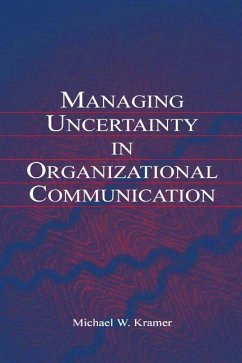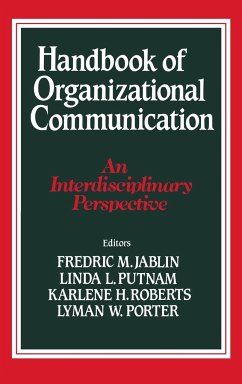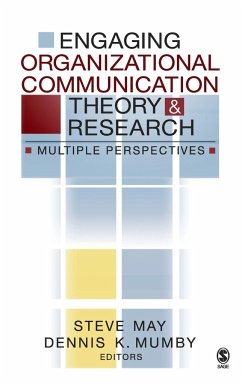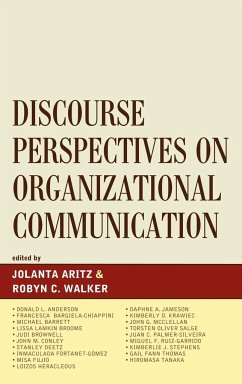
Origins and Traditions of Organizational Communication
A Comprehensive Introduction to the Field
Herausgeber: Nicotera, Anne M.
Versandkostenfrei!
Versandfertig in 1-2 Wochen
167,99 €
inkl. MwSt.

PAYBACK Punkte
84 °P sammeln!
Origins and Traditions of Organizational Communication provides a sophisticated overview of the fundamentals of organizational communication as a field of study, examining the field's foundations and providing an assessment of the field to date.














